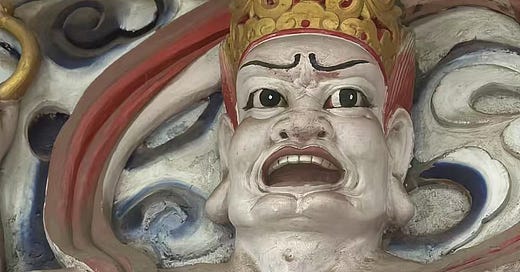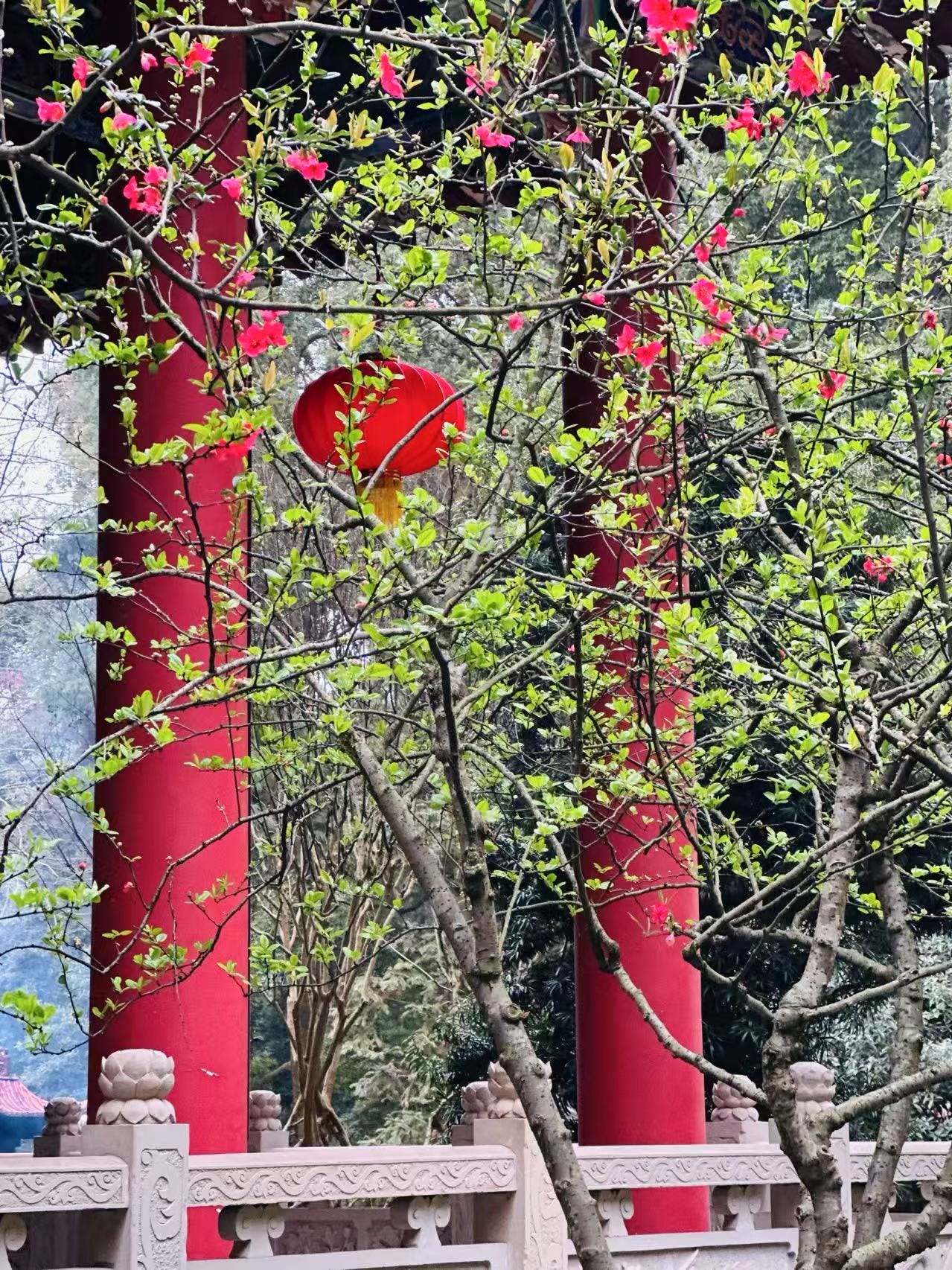Should The Daodejing be read as a blueprint for governing society or as a guide to personal fulfilment? I have noted before the amorphous nature of the text, a mystical kind of mirror that seems to conjure meanings out of words the viewer most wants to find. Perhaps real truth feels like that, a basic fabric that underlies all things. An interpreter can lean into the view of the ruler, or suggest a critique of western economic history, or divine a singular personal spirituality, and yet this malleable nature resists losing that reflective character.
“In ancient times good Dao practitioners chose not to enlighten the people; they made them simple-minded. It’s hard to reign over the people as they have too much cleverness. Therefore he who rules a country with cleverness will ruin it; he who rules without it will be its blessing. When you know these two contrasting models, you know the way to rule. If you always know to rule this way, you should have acquired the mysteriously profound virtue. This mysteriously profound virtue, deep and far-reaching, and different from the practices of others, will eventually bring grand harmony to the country.”
I am often drawn into reflection with myself, questioning whether Nature can be a reliable guide to not only a satisfactory, but a positive life. Nature plays all the numbers, so there are some wildly different minds from my own out there. Maybe our concerns should be confined to ourselves, the only mind we can make some claim to know. Yet there must be much in common amongst us. On inspection, the similarities stand out more brightly. So, an individual’s nature can guide behavior, and a society can be guided by the shared collective nature of the individual minds that comprise it.
My life is managed by habits and routines. These shortcuts extend the capacity of my mind beyond the basic tasks of remembering to brush my teeth, to go to the gym, to wake up early, leaving me some time for enjoyment of the spontaneity of life. Society is managed by laws and common conventions. These agreed upon shortcuts let us cross the street safely, open businesses, and reach out to strangers with similar interests.
But my habits and routines can fall behind my growth and development as a person, failing to achieve their aims, yet sustaining themselves, persisting like living things. We can form irrational attachments to societies’ laws and conventions at the cost of human flourishing. This happens to every one of us and every society I have ever seen or read about.
So. Are we just too clever to be trusted?
The habits and routines of individuals and societies may be different, but I think there are two ingredients necessary for success common to both: empathy and reflection. I am going to fail in my efforts to achieve the consistency that I want to. At times that will be my doing, at other times events just won’t go my way. Instead of beating myself up, as I have done in the past so proficiently, how about a bit of kindness? A bit of kindness followed by reflecting on the habit, the traditions and beliefs that prop it up, and asking, does this still serve me? Then set my mind to making changes if I feel it does not.
Society works, or doesn’t work, as the case might be, in many places and circumstances in the same way. Somehow we have been fooled into believing there is one best way to think, to act, and that our way is the right way. Any minds different than ours are singled out as a project for change instead of celebrated as an expression of Nature asserting itself. While we’re busying ourselves critiquing others and bolstering up our own sense of righteousness, we leave no time to reflect on the collective laws and traditions that put us here. In short, we never stop to look around and see what is happening to us. We’ve damned ourselves.
But I no longer believe this is inevitable. We can learn to see and move past these patterns. Things might seem to be stuck in the same mire Laozi describes, but we have made progress. Just now is the time to encourage ourselves and each other and move forward. I am not going alone into the West. I am staying to make this journey here and now.
[Author’s Note: For those interested, the translation used for this series is Dao De Jing, translated by Ju Yan’an. It was my first and has become my favourite translation. Find it here.]
[Author’s Note: Thank you for taking the time to visit. All pictures were taken by the author or family member, unless otherwise noted.]






Interesting post! The force of the society is so strong on us individuals since we have been shaped unconsciously from young. Access to smartphones and social media accelerates this with most of us are leaning towards the same or similar taste.
We get conditioned to think that the pursuit of goodness, virtue can be postponed in our laser-like pursuit of wealth, accomplishments, and all things visible above everything else.
How do we encourage one another in the family, our neighborhoods to prioritize wisdom, well being not just for humans but for/with nature?
This concept is so important, Paul. I am convinced that a well functioning society starts with us. The more fulfilled we become, built on habits that matter, the better our society will become.